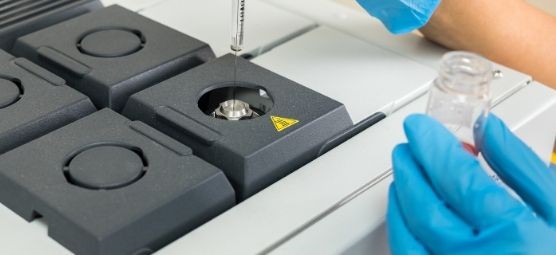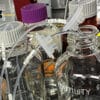If you work in a research or university lab, there’s a good chance you’ve come in contact with mass spectrometry machines or data. You might even be the operator of a mass spectrometer. However, most people don’t know the origin of these machines. Keep reading to learn the history of mass spectrometry (MS).
The individuals
There is some debate as to who made the groundbreaking finding that led to mass spectrometry. However, most believe that Wilhelm Wien, a German physicist, made the findings in 1898. Wien found that you could deflect charged particles with a magnetic field, which became the foundation of mass spectrometry. However, with more research and experiments came more findings. For instance, J.J. Thomson, a British physicist, was able to pass ions with a positive charge through an electrostatic field. Thomson found that the ions separated according to their mass. In approximately 1918, Francis Aston, a British physicist, found that he could actually focus spectroscopes. This helped scientists better understand ions and their mass with the help of several other experts.
How the spectrograph changed over the years
The mass spectrometry machine found in labs today looks much different than the original machines. In fact, Francis Aston’s spectrograph looked like a contraption that would be under your car. Today, spectrographs have become much more uniform and reliable.
How mass spectrometry helps our everyday lives
As different needs have arisen throughout the years, experts have found several ways to use mass spectrometry in different industries. Of course, MS is vital in industries such as pharmaceuticals, proteomics, and metabolomics. However, many don’t realize that there are a few more unique applications for mass spectrometry. For instance, Major League Baseball uses MS to screen players for performance-enhancing drugs. Additionally, NASA uses MS for planet and atmosphere research.
Needless to say, the history of mass spectrometry has come a long way since Wien’s 1898 take on MS. Without Wien’s work, who knows where we would be today—mass spectrometry might not even exist without his findings.
Here at GenTech Scientific, we excel in providing high-quality, refurbished lab equipment. Our company started as a lab equipment repair shop, and we quickly realized that we had something special. Between our industry expertise and in-house refurbishing capabilities, we’re able to provide personalized customer service. So whether you need repairs, parts, or you’re looking to buy a mass spectrometer, we have a wide array of products for you to shop from. Contact us today for more information.







